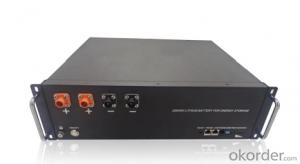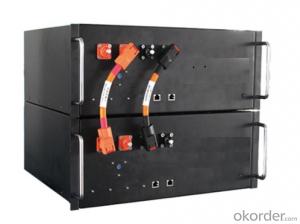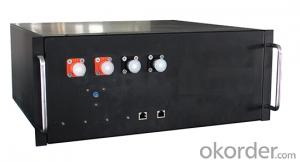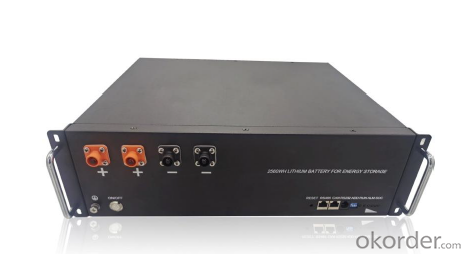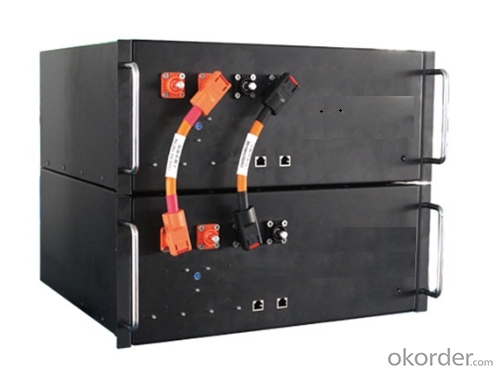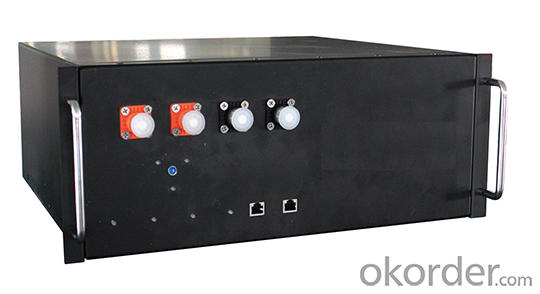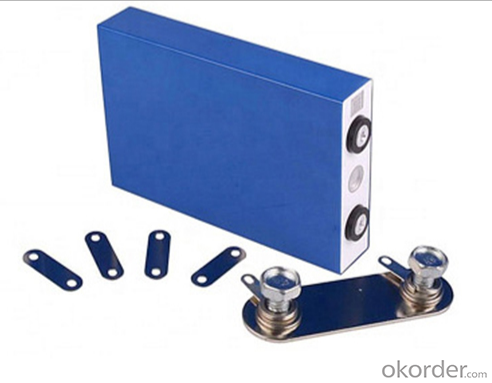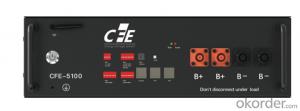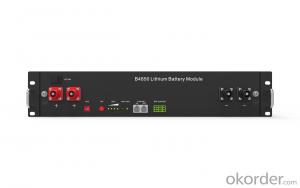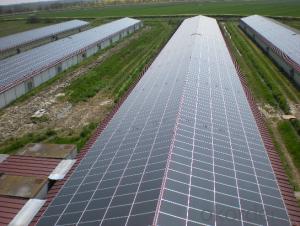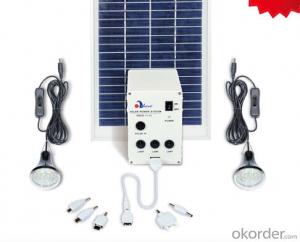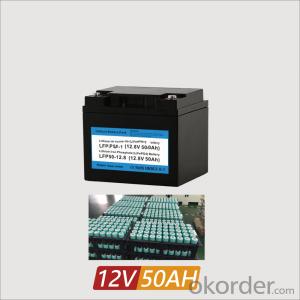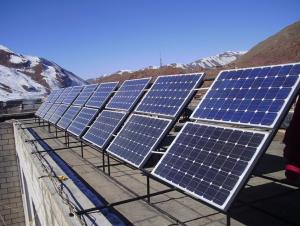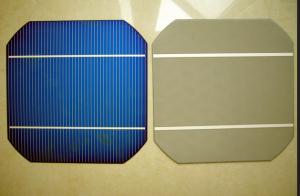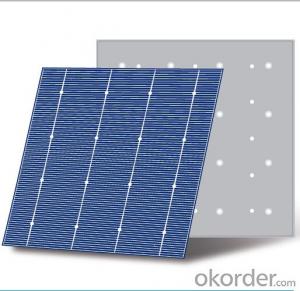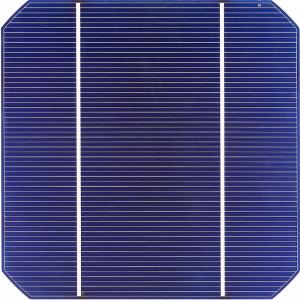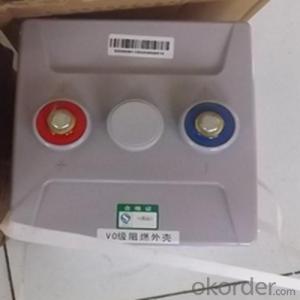Solar Cells Wholesale CNBM 51.2V 50AH -2560Wh Solar Lithium Battery Storage
- Loading Port:
- China main port
- Payment Terms:
- TT OR LC
- Min Order Qty:
- 10 set
- Supply Capability:
- 10000 set/month
OKorder Service Pledge
Quality Product, Order Online Tracking, Timely Delivery
OKorder Financial Service
Credit Rating, Credit Services, Credit Purchasing
You Might Also Like
Specification
Material:
battery
Max. Power(W):
2560
Number of Cells(pieces):
1
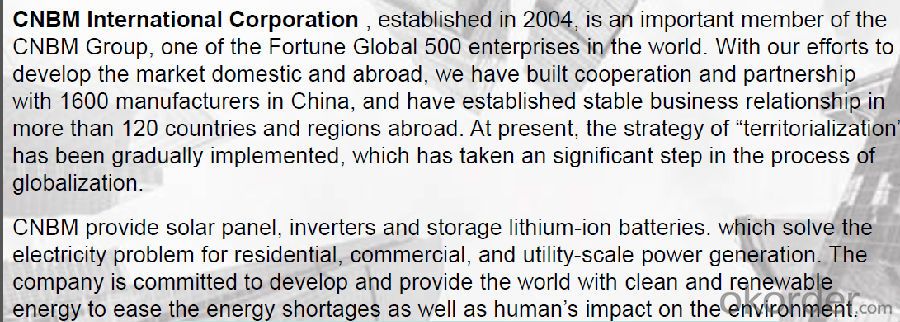
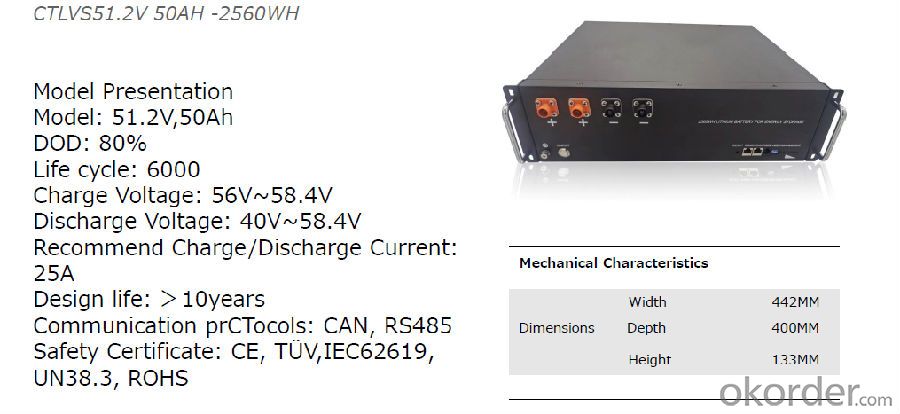
- Q: Can solar cells be used for powering concert venues?
- Yes, solar cells can be used for powering concert venues. Solar panels can be installed on the roof or surrounding areas of the venue to capture sunlight and convert it into electricity. This renewable energy source can help reduce the carbon footprint of the venue and provide a sustainable solution for powering concerts.
- Q: How much energy can a solar cell generate?
- The amount of energy a solar cell can generate depends on various factors such as its size, efficiency, and the amount of sunlight it receives. On average, a solar cell can generate anywhere from a few watts to several hundred watts of power.
- Q: How do solar cells perform in urban environments?
- Solar cells can perform well in urban environments, although their efficiency may be slightly reduced compared to more ideal conditions. The presence of tall buildings and shadows can partially block sunlight, affecting the overall energy output. However, advancements in solar technology, such as the use of bifacial panels and improved tracking systems, can help mitigate these challenges by capturing light from multiple angles and adapting to changing conditions. Moreover, the increasing installation of solar panels on rooftops, facades, and other urban structures is significantly contributing to the adoption of renewable energy in cities.
- Q: What is the role of solar cells in powering streetlights?
- The role of solar cells in powering streetlights is to harness sunlight and convert it into electricity. This electricity is then stored in batteries, which are used to power the streetlights during nighttime or when there is not enough sunlight available. Solar cells enable streetlights to operate independently from the electrical grid, reducing energy costs and environmental impact.
- Q: What is the maximum voltage output of a solar cell?
- The maximum voltage output of a solar cell depends on various factors such as the type of solar cell, sunlight intensity, temperature, and cell design. Typically, most solar cells have a maximum voltage output ranging from 0.5 to 1 volt.
- Q: Can solar cells be used for desalination?
- Yes, solar cells can be used for desalination. Solar energy can be harnessed to power desalination systems, such as reverse osmosis or solar stills, which convert saltwater into freshwater by separating the salt and impurities from the water. This sustainable and renewable energy source has the potential to provide a clean and cost-effective solution to meet the increasing demand for fresh water in regions with limited access to clean water sources.
- Q: How do solar cells affect property value?
- Solar cells can positively impact property value by increasing its market appeal and attractiveness to potential buyers. The presence of solar cells signifies energy efficiency, lower electricity costs, and environmental consciousness, which are all desirable qualities in a property. Additionally, solar cells can potentially generate income through net metering or selling excess energy back to the grid, further enhancing the value of the property.
- Q: I have a turnkey solar power project starting in 6 months, now we are searching the market in south China to find the best solar cells manufacturers. Any professional suggestion or recommendation?
- In south China, you will have more resources than in north China, because there are many solar cell factories over there, which means you get to have more choice to select from.
- Q: What is the expected degradation rate of a solar cell?
- The expected degradation rate of a solar cell can vary depending on various factors such as the quality of materials used, manufacturing processes, and operating conditions. On average, solar cells can experience a degradation rate of around 0.5-1% per year. However, with advancements in technology and better quality control measures, modern solar cells are designed to have lower degradation rates, often below 0.5% per year, ensuring their longevity and efficiency over time.
- Q: How are solar cells installed on rooftops?
- Solar cells are typically installed on rooftops through a process that involves assessing the roof's suitability, preparing the surface, mounting the solar panels, connecting them to the electrical system, and ensuring proper wiring and grounding for optimal performance.
Send your message to us
Solar Cells Wholesale CNBM 51.2V 50AH -2560Wh Solar Lithium Battery Storage
- Loading Port:
- China main port
- Payment Terms:
- TT OR LC
- Min Order Qty:
- 10 set
- Supply Capability:
- 10000 set/month
OKorder Service Pledge
Quality Product, Order Online Tracking, Timely Delivery
OKorder Financial Service
Credit Rating, Credit Services, Credit Purchasing
Similar products
Hot products
Hot Searches
Related keywords
